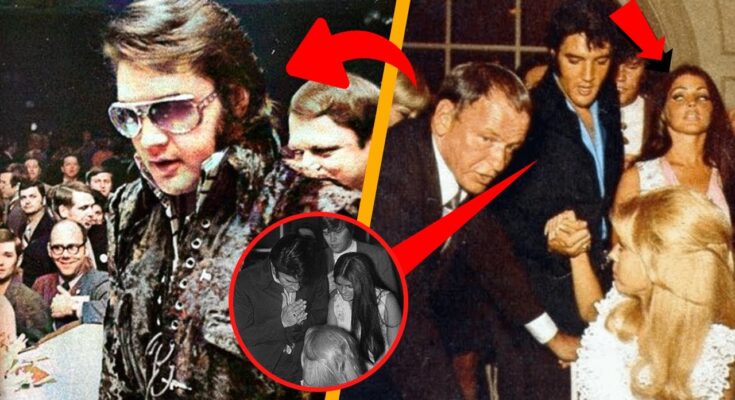Elvis Presley, known as the King of Rock and Roll, is a figure whose influence transcends music, fashion, and entertainment. From his humble beginnings in Tupelo, Mississippi, to his rise as a global icon, Presley’s life is filled with extraordinary moments that have cemented his legendary status. A recent video explored ten key moments that defined his career and personal life, highlighting the triumphs and tribulations that shaped him.
The journey began on February 6, 1955, when Elvis met Colonel Tom Parker, a savvy promoter who would play a pivotal role in shaping his career. Parker recognized the young artist’s potential and negotiated groundbreaking deals, including Elvis’s move to RCA Records and his entry into Hollywood. This partnership catapulted Elvis into unprecedented fame, marking the start of a new era in music history.
A major turning point occurred in late 1955 when RCA Records signed Elvis for a staggering $35,000—an unprecedented sum at the time. This deal coincided with the release of “Heartbreak Hotel,” which showcased Elvis’s emotionally charged delivery and innovative sound. The song quickly became his first number one hit, establishing him as the new king of rock and roll and paving the way for future success.
In 1956, Elvis’s television appearances ignited a cultural firestorm. His electrifying performances, particularly on shows like “The Dorsey Brothers” and “The Milton Berle Show,” drew both admiration and outrage, with conservative viewers criticizing his provocative style. Despite the backlash, these appearances significantly boosted his popularity, positioning him as a voice for rebellious youth culture.
The release of “Jailhouse Rock” in 1957 marked another milestone, as the film showcased Elvis’s acting abilities and musical prowess. The movie’s titular song, featuring a high-energy dance sequence, is often credited as a precursor to modern music videos, further solidifying his status as a multifaceted entertainer.
A defining moment in Presley’s life occurred on March 25, 1958, when he was drafted into the U.S. Army. While fans feared this would mark the end of his reign, Elvis’s decision to serve as a regular soldier earned him respect and transformed his public image from a rebellious youth icon to a patriotic figure.
Elvis’s career took another turn on May 12, 1960, during a groundbreaking duet with Frank Sinatra. This collaboration not only broadened his appeal to older audiences but also showcased his versatility as an entertainer. The performance on Sinatra’s special was a resounding success, signaling his transition from a controversial figure to a mainstream superstar.
The “68 Comeback Special” was a pivotal moment for Elvis, marking his return to prominence after a period of mediocrity. The special, known for its raw performances and return to his rock roots, became NBC’s highest-rated show of the year, reestablishing him as a vital contemporary artist.
Following this resurgence, Elvis embarked on a celebrated Las Vegas residency in 1969, reigniting his passion for live performances. His electrifying shows captivated audiences, paving the way for a new chapter in his career focused on music and live entertainment.
On January 14, 1973, Elvis made television history with “Aloha from Hawaii,” the first-ever satellite concert broadcast worldwide. The performance showcased his incredible vocal range and stage presence, reaffirming his status as a global superstar and setting a new standard for live music broadcasts.
However, amid his professional successes, Elvis faced personal challenges, notably his divorce from Priscilla Presley on October 9, 1973. This separation profoundly impacted his life, contributing to struggles that marked his later years.
Elvis Presley’s life story is a tapestry of highs and lows, triumphs and challenges. His electrifying performances, groundbreaking television appearances, and personal struggles contributed to a legacy that continues to resonate today. Decades after his passing, his influence remains evident across music, fashion, and entertainment, proving that Elvis didn’t just make history—he became history. He remains an enduring symbol of American culture and the transformative power of rock and roll.



